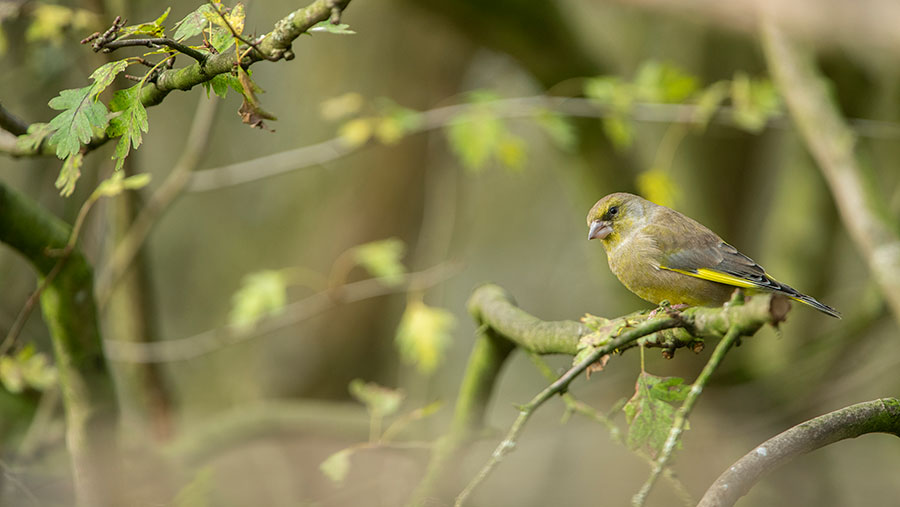More farmland and upland birds ‘red-listed’ says RSPB
 Greenfinch © RSPB
Greenfinch © RSPB There has been no improvement in the overall status of bird species associated with farmland and the uplands in the UK, despite the best efforts of land managers, according to new data from the RSPB.
The latest assessment of the status of all the UK’s 245 regularly occurring bird species – Birds of Conservation Concern 5 (PDF) – shows that 70 species are now on the red list of “highest conservation concern”, with the swift, house martin and greenfinch moved from the amber list.
They join other well-known birds already on the list, such as the cuckoo and the nightingale, which migrate between the UK and sub-Saharan Africa each year.
See also: Farmland bird count shows farmers committed to conservation
Despite the positive work being done by farm managers and gamekeepers in agri-environment schemes to try to reverse the trend in declining bird numbers on farms, many of these such as starling, curlew and turtle Dove, are continuing to decline, says the review, which was funded by the RSPB and Natural England.
A number of reasons are highlighted for the overall continuing decline in bird numbers, including changes in the way farmland is managed, climate change, urbanisation, invasive non-native species and pollution.
Multiple reasons for decline
Dr Andrew Hoodless, director of research at the Game and Wildlife Conservation Trust (GWCT), said a better understanding is needed of the impact of climate change, changing habitats and food availability along migration routes.
However, for many red-listed species, improving breeding success in the UK was vital, he added.
“We can and must make real and immediate improvements to this through better engagement with UK farmers, land managers and gamekeepers to encourage adoption of effective packages of conservation measures.”
In last year’s GWCT Big Farmland Bird Count, which takes place each February, farmers counted 25 rare species from the red list, with eight of these appearing in the 25 most frequently seen species.
